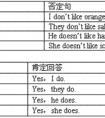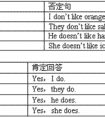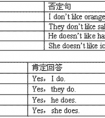选词填空。Would How WhatWhereWill 1.areyougoing?2.doyoufeel?3.isthematter?4. youliketoperformattheparty?5. youpromisetowritetome?-六年级英语
题文
| 选词填空。 | |
2. do you feel? 3. is the matter? 4. you like to perform at the party? 5. you promise to write to me? |
答案
| l.Where 2.How 3.What 4.Would 5.Will |
据专家权威分析,试题“选词填空。Would How WhatWhereWill 1.areyougoing?2.doyoufe..”主要考查你对 疑问副词,疑问代词,一般将来时,固定搭配 等考点的理解。关于这些考点的“档案”如下:
疑问副词疑问代词一般将来时固定搭配
考点名称:疑问副词
- 疑问副词:
用来引导特殊疑问句,表示时间,地点,方式,原因等,常见的有:when,where,how,why等。
分类:
时间副词:now, then, yesterday, always, already, soon
地点副词:here, home, upstairs, nowhere, above, near, beyond
方式副词:多数是形容词加上ly构成的,和一些well, fast, quick, slow, hard, alone, straight, wide
在加词尾ly时要注意:
(1)辅音+le:simple→simply, gentle→gently,
(2)以ic结尾的词:classic→classical但是public→publicly
(3)以辅音读音是[i]的y结尾的词:easy→easily
(4)特例:full→fully, whole→wholly, true→truly
程度副词,连接副词,关系副词
much, enough, quite, hardly, almost, deeply
疑问副词连接副词,关系副词:
how,who,where - 疑问副词在句中的位置及用法举例:
由于疑问副词后接疑问句,因此这些副词一般都位于句首。例如:
How do you go to school? 你怎么去上学?
Why do you dislike the game? 为什么你不喜欢这个游戏? - 疑问代词和疑问副词区别:
1. 疑问代词做对陈述句的主语,宾语或定语提问,即做句子的主语,宾语或定语, 如:
what, who/ whom, whose.
eg. Who is talking ?
What can you see?
Whose shirt is this?
2.疑问副词对时间,地点,方式等状语提问,如:
when, where, how 等.
eg. When is your birthday?
Where are you going?
How do you know?
考点名称:疑问代词
- 疑问代词:
在句子中用来构成特殊疑问句,主要用于询问“何人”、“何事”、“什么”。
常见的疑问代词如下表所示:
疑问代词
替代范围
who
人
whom
人
whose
人
which
人、事、物
what
事、物
考点名称:一般将来时
一般将来时:
表示将来某个时间要发生的动作或存在的状态,也表示将来经常或反复发生的动作。
由“助动词will+动词原形”构成。“be going to+动词原形”结构是将来时的另一种形式,表示将要发生的事或者事先经过考虑打算去做某事。
例:We will go to Shanghai next year. 明年我们要去上海。
We are going to have a football match tomorrow. 我们明天要举行一场足球比赛。
Tom is going to have a bath. 汤姆要去洗澡了。一般将来时常见结构:
1、will / shall + 动词原形(否定句在will/shall后加not)
will 常简略为 'll,并与主语连写在一起,如: I'll,she'll,he'll,it'll,we'll,you'll,they'll。
一般疑问句如用will you…?其简略答语须是Yes,I will或 No,I won't;如用 Shall I…?(较少见)其简略答语须是 Yes,I shall.或 No, I shall not.
这种方法一般单纯地表示将来某个时间将要发生的动作或存在的状态。will用于各种人称;shall只用于第一人称。 例如 :
I will / shall go to visit him next week. 下周我将去拜访他。
What time shall we go there tomorrow? 明天我们几点去那儿?
2、be going to 动词原形
be going to 相当于一个助动词(其中be有人称和数的变化),与它后面的动词原形一起构成谓语。用来表示近期将要发生的动作以及计划、安排和打算要做的事。例如:
There is going to be a football match this afternoon.今天下午将有一场足球赛。
I‘m going to go to the park. 我将要去公园。
常用结构:
1、用于"I expect, I'm sure, I think, I wonder宾语从句"中。
Don't worry about the exam. I'm sure you'll pass.
不要担心这次考试,我确信你会通过的。
2、用于祈使句和陈述句中。
Work hard and you will succeed.
如果你努力,就会成功的。
3、与表示时间或条件的状语从句连用。
I'll let you know as soon as he arrives.
他一到我就通知你。- be going to与will的区别:
be going to与will两者都可表示将要发生的事、将要去做某事,但它们有如下几点区别:
1. be going to 表示近期、将要发生的事情,will 表示的将来的时间则较远一些,如:
He is going to write a letter tonight.
He will write a book one day.
2. be going to 表示根据主观判断将来肯定发生的事情,will表示客观上将来势必发生的事情。
He is seriously ill. He is going to die.
He will be twenty years old.
3. be going to 含有“计划,准备”的意思,而 will 则没有这个意思,如:
She is going to lend us her book.
He will be here in half an hour.
4.在有条件从句的主句中,一般不用 be going to, 而多用will, 如:
If any beasts comes at you, I'll stay with you and help you
- 最新内容
- 相关内容
- 网友推荐
- 图文推荐
| [家长教育] 孩子为什么会和父母感情疏离? (2019-07-14) |
| [教师分享] 给远方姐姐的一封信 (2018-11-07) |
| [教师分享] 伸缩门 (2018-11-07) |
| [教师分享] 回家乡 (2018-11-07) |
| [教师分享] 是风味也是人间 (2018-11-07) |
| [教师分享] 一句格言的启示 (2018-11-07) |
| [教师分享] 无规矩不成方圆 (2018-11-07) |
| [教师分享] 第十届全国教育名家论坛有感(二) (2018-11-07) |
| [教师分享] 贪玩的小狗 (2018-11-07) |
| [教师分享] 未命名文章 (2018-11-07) |

![—— He'sneartheTVset (电视机).[ ]A.What'stheboydoing?B.Where'stheboy?C.Whoistheboy?-三年级英语](http://www.00-edu.com/d/file/ks/4/1/38/2019-08-19/smalla98d03e1cd1ad5f1eea83d4f5e418fe61566228470.jpg)
![_________ didyou_________?[ ]A. Where; wentB. Where; goC. What; went-六年级英语](http://www.00-edu.com/d/file/ks/4/1/38/2019-08-19/small4cca8e85fae1eda0cb114208d0da83c91566228121.jpg)





